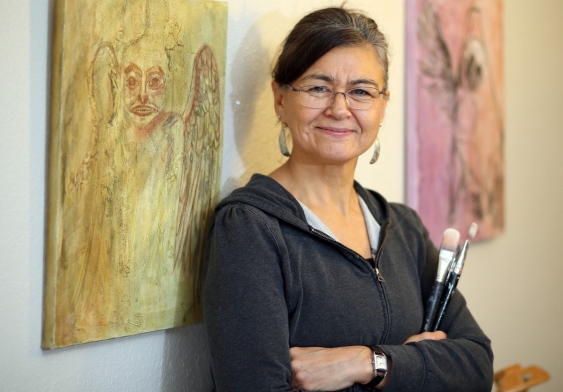
A wellness blog from Patricia Vickers, Director Mental Wellness, FNHA
After trauma the world is experienced with a different nervous system. The survivor's energy now becomes focused on suppressing inner chaos, at the expense of spontaneous involvement in their life. These attempts to maintain control over unbearable physiological reactions can result in a whole range of physical symptoms, including fibromyalgia, chronic fatigue, and other autoimmune diseases. This explains why it is critical for trauma treatment to engage the entire organism, body, mind, and brain.
--Bessel van der Kolk, The Body Keeps the Score
Trauma changes our nervous systems, our brains and our minds. I was first introduced to the impact of trauma on the brain, body and mind while working as a therapist. Over and over again I witnessed individuals struggling with past traumas, working to find a way to heal. They mirrored my personal experience with a traumatic childhood. It wasn't until recently that I began to understand how trauma changes the brain and impacts our overall stabilization and wellness.
But the most important thing to know is that we can heal from trauma.
As First Nation peoples, we have been conditioned to believe that because we are Indigenous, we are inferior as human beings—an oppressive shame-based reality. In addition to this conditioned belief, through colonization, many First Nation peoples have experienced both individual and collective trauma. Through both oppressive acts of colonization and traumatic experiences such as sexual abuse, physical violence, incest and neglect, many of us come to believe that such experiences are evidence that we truly are less than human.
To live in freedom and spiritual balance, it is necessary to face oppression with understanding and clear seeing and to release resentment and/or revenge, to face shame-based, intergenerational social conditioning and embrace ancestral teachings of respect.
The violence that exists in families today is not because we are inferior human beings, it is because we have a history of oppression that includes shame-based intergenerational wrongdoing and atrocities enacted upon children. Ancestral teachings of respect teach us that spiritual balance for individuals and the collective is the most important goal in life. Respect is more than an action, it is a way of being in mind, heart and soul. The principles of non-judgment, humility, respect, honesty, love, awareness, understanding and truth are taught through ceremonial and cleansing ways and help us to regain spiritual balance and the ability to respect ourselves and others.
Recovery from trauma for First Nation peoples begins with a two-fold process: first coming to understand the nature of shame-based oppression and its intergenerational impacts and, secondly, understanding that trauma is an experience we share as human beings.
Early in the journey of healing, it is important to understand that an individual is not their experience—I am not my trauma and you are not yours. Ancestral principles of respect and unity are life-giving principles. May you connect with them today.

